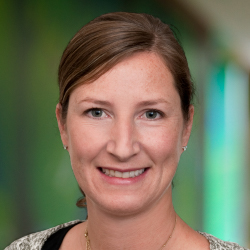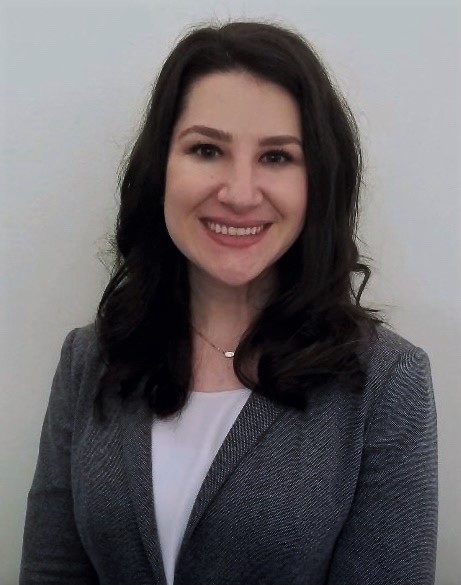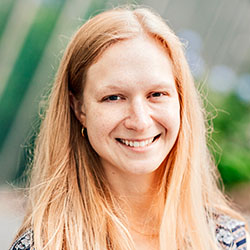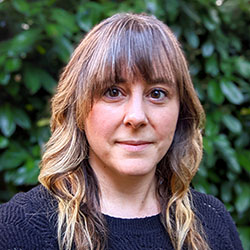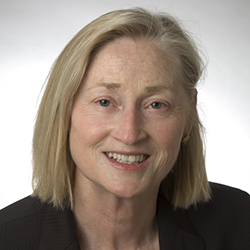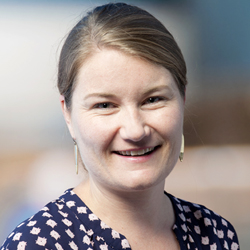Behavioral Health Crisis Care Clinic
What is the Behavioral Health Crisis Care Clinic?
The Behavioral Health Crisis Care Clinic offers families an option besides the emergency room when their child is having a mental health crisis — specifically a suicidal crisis that is not an emergency. We will see your child for up to 4 visits, typically once a week.
A referral is required. We accept referrals from Seattle Children’s providers, emergency room providers, primary care providers, mental health providers and school healthcare providers. Also, parents and caregivers can call us directly to request services.
Behavioral Health Crisis Care Clinic is not the same as Psychiatric Urgent Care, which does not require a referral and provides urgent same-day mental and behavioral health support for children and teens in Washington state who do not need the services of an emergency department.
Who can the clinic help?
We help children and teens having a suicidal crisis that is not an emergency. Signs that your child is in crisis include:
- Talking about suicide
- Recent history of suicide attempts
If your child's crisis does not involve suicidality, see our list of services for other options.
Is your child having a behavioral health emergency?
Signs of an emergency:
- Your child is at immediate risk for self-harm.
- Your child is a danger to others.
- Your child cannot take part in safety planning to avoid self-harm.
- Your child cannot care for themselves.
- You are concerned that you cannot keep your child safe until they have an appointment.
If your child needs help right away, call the 988 Suicide & Crisis Lifeline at 988 (available 24 hours a day, 7 days a week in the United States) or go to your nearest emergency room.
If you need urgent medical help (such as for an overdose) or are in immediate danger, call 911. See specific language you can use (PDF) to help lessen the potential risk of bias and harm when calling 911. (Also available in Amharic, Arabic, Russian, Simplified Chinese, Somali, Spanish, Ukrainian and Vietnamese.)
Children with complex mental health issues may need to stay in the hospital at times. When other options are not enough to keep them safe, we treat children in our Psychiatry and Behavioral Medicine Unit.
How will this clinic help my family?
We provide quick access to 1 to 4 visits. During this time, we will:
- Work with you and your child on a plan to stay safe and steps to follow that plan
- Work with you and your child to assess current concerns
- Assess which treatments are most likely to help your child
- Help build skills to talk within your family about your child’s mental health needs
- Help your child cope with stressful feelings and events and find safer ways to react
- Support your family in returning to normal as the crisis passes
- Link you to follow-up care
- Coordinate with your child’s current therapist if they have one
Our goals are to:
- Avoid a lengthy assessment in the emergency department
- Avoid a hospital stay unless your child needs it
- Support your family and offer education about your child's behavior
If your child is not in crisis but you need help finding mental health providers in your local area who fit your child’s needs, contact Washington’s Mental Health Referral Service for Children and Teens.
“To be surrounded by such knowledge, information and expertise was a tremendous relief. They made the system more manageable. It gave us fast and furious access to services and psychologists.”
What to Expect
To get started, we need a referral.
- Community providers, parents and caregivers may call the Outpatient Psychiatry Triage line at 206-987-2164, option 2, to see if we have openings and place a referral by phone.
- Seattle Children’s providers may complete an internal referral.
If we have an opening within 1 week, we will review the referral. If you are self-referring or your referral came from a provider outside of Seattle Children’s, we will call you to ask questions to ensure our services are a good fit.
If we do not have an opening within 1 week, we will inform the referrer (or you if you called about your child). At this time, we have limited capacity and do not keep a waitlist. This approach lets us remain available for an urgent need.
If we accept your child into our clinic:
- We call to tell you about our clinic and see if your family wants an appointment.
- We will offer your family an appointment within a week.
- Your appointment will be at the Outpatient Psychiatry and Behavioral Medicine Clinic on Seattle Children’s hospital campus, or we may offer you a telehealth (virtual) visit.
- For in-person visits, please come 15 minutes early to fill out paperwork. It helps if you bring any prior safety plans or mental health assessments.
- Your first visit is 90 minutes.
- You and your child will meet with 2 licensed mental health providers. These may be a psychologist, mental health therapist or social worker. During most of the visit, parents and caregivers meet with 1 provider while your child meets with another provider.
- At the end of each visit, we decide with you whether another appointment would help. We provide up to 4 visits.
- We will provide case management to help connect you with ongoing outpatient mental health care.
Who’s on the team?
Licensed mental health providers in our program include:
Teams
Psychologists
Resources
The Behavioral Health Crisis Care Clinic is part of Seattle Children’s Psychiatry and Behavioral Medicine and Suicide Prevention Program.
- Getting Help in a Mental Health Crisis (PDF) (Amharic) (Arabic) (Russian) (Simplified Chinese) (Somali) (Spanish) (Ukrainian) (Vietnamese)
- Washington’s Mental Health Referral Service for Children and Teens
- More resources for mental health
Contact Us
Community providers and caregivers may contact the Outpatient Psychiatry Triage line at 206-987-2164, option 2, to see if we have openings and place a referral by phone.
Please note, this is not a crisis line. If your child needs help right away, call the 988 Suicide & Crisis Lifeline at 988 (available 24 hours a day, 7 days a week in the United States) or go to your nearest emergency room. If you need urgent medical help (such as for an overdose) or are in immediate danger, call 911. See specific language you can use (PDF) to help lessen the potential risk of bias and harm when calling 911. (Also available in Amharic, Arabic, Russian, Simplified Chinese, Somali, Spanish, Ukrainian and Vietnamese.)
Seattle Children’s providers may complete an internal referral.
Providers: For non-crisis cases, our Partnership Access Line (PAL) consultants are available to discuss best practices for treatment and support weekdays 8 a.m. to 5 p.m.
Have insurance questions?
Some insurance plans have Seattle Children’s as an in-network provider for medical services but an out-of-network provider for mental health services.
Even if your plan offers an out-of-network benefit, we are not accepting new patients for our mental health services if their insurance does not include Seattle Children’s as an in-network provider.
Learn about mental health insurance coverage at Seattle Children’s.
Paying for Care
- Call your insurance plan to check your benefits. Read about insurance and mental health coverage at Seattle Children’s.
- Learn more about paying for care at Seattle Children’s, such as billing and financial assistance.
In crisis?
If you, your child, family or friend needs help right away, call, chat or text 988. The free and confidential 988 Suicide & Crisis Lifeline is available 24 hours a day, 7 days a week in the United States to provide support for people in distress, as well as prevention and crisis resources.
Deaf/Hard of Hearing people can get help through 988 or the Deaf Crisis Line.
Seattle Children’s Psychiatric Urgent Care offers in-person and video visits for same-day mental health support for children and teens ages 4 through 17 who may not need the services of an emergency department.
Hotlines for Youth (PDF) provides other options for immediate help for children and teens. (Also available in Amharic, Arabic, Russian, Simplified Chinese, Somali, Spanish, Ukrainian and Vietnamese.)
